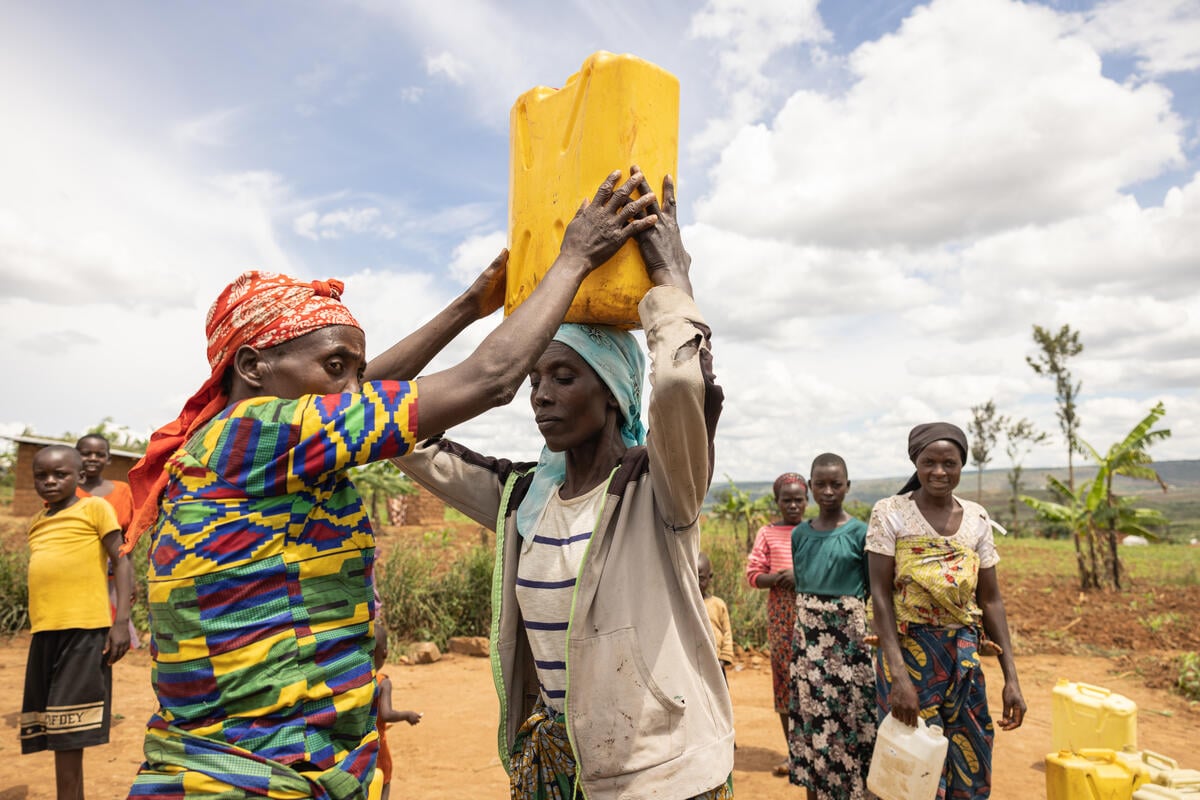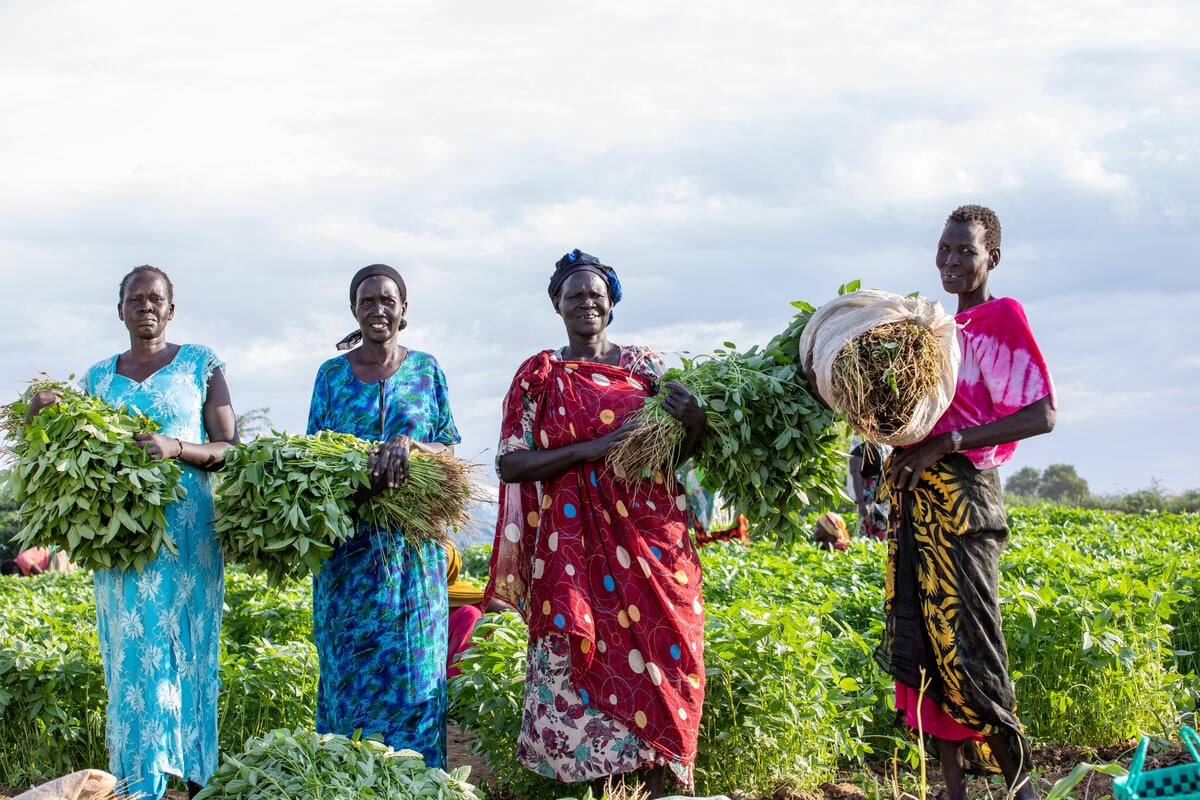Unaccompanied and separated Congolese children - a worry for UNHCR
Unaccompanied and separated Congolese children - a worry for UNHCR

"Why did they kill my parents?”
This refrain which resonates in 35 years old Jean Mbuyi’ s mind leaves him wrung out with helplessness and despair.
“How do I explain to a 12 year old that her parents became the casualties of a senseless, uncaring and evil conflict that has killed thousands of innocent people and forced thousands more from their country?” asks Mbuyi.
He is referring to the increasing clashes between Congolese security forces and local militia groups in Mpweto, which on 30 August 2017 caused the displacement of thousands of refugees who sought protection in Zambia.
Over 600 refugees fled into Zambia’s Luapula province that day and every day since, between 50 and 100 people have continued to arrive, in search of safety and security.
His neighbor’s daughter, 12 year old Kisimba Vero watched in horror as her parents were hacked to death.
“These people go as far as to really mutilate their victims,” Mbuyi adds, explaining the reason he and his family fled Mpweto. 'We had no choice but to flee or I would not be here telling this story.”
According to Mbuyi, Mpweto had come under a ferocious exchange of gunfire recently, as renewed fighting between Congolese security forces and a local militia group forced over 100 Congolese into Zambia.
Many more have sought refuge in Zambian villages waiting to reunite with family whom during the gunfire, scattered and fled in different directions, hopeful that they too have not become a casualty of the conflict in the DRC’s Haut Katanga and Tanganyika provinces.
Mbuyi gathered his two young children, shepherding their playmate Kisimba and another child out of harm’s way to Zambia. Mbuyi and the children he fled with had just the clothes they were wearing and nothing else.
UNHCR and Zambian security personnel monitor three key border entry points daily where the refugees arrive. Identified refugees are then provided with transportation to Chiengi reception centre. At the reception centre, refugees are given hot meals and accommodation in tents overnight. The next morning they are taken by bus to Kenani transit centre joining over 5,000 Congolese refugees who are receiving protection and immediate life-saving assistance there. It is through this process that Mbuyi Jean and his family arrived in Kenani transit centre.
Throughout this time, 12 years old Kisimba wanted to know why her parents had been killed.
“What could I say? What could I tell her? How do I explain this degree of hatred between countrymen to a child?” asks Mbuyi.
“All I could tell her is that she shouldn’t worry and that I am her father now,” says Mbuyi, “I don’t think this offers an explanation for the death of her parents but it is the best assurance I can give her after what she’s been through.”
Kisimba’s story echoes that of many unaccompanied and separated children in Kenani transit centre.
Fourteen year old Tshimbomba Mukalayi and his nine year old brother also fled Mpweto following the violent death of their father. According to the children, he was killed by Congolese security forces while harvesting cassava in the field away from home.
When a neighbor confirmed their father’s death, Mukalayi threw a few items of clothing into an old bag and followed in the footsteps of fleeing villagers.
The traumatized teenager, clearly overwhelmed by his circumstances and the sudden responsibility of being his nine year old brother’s primary caregiver, speaks in hushed whispers. He and his brother have since been “adopted” by a sympathetic family in Kenani transit centre.

Not far from Mukalayi’s makeshift shelter is 16 years old Mwaba Finesi. He and his younger brother are guilt-ridden about leaving their 80 years old grandfather behind. He has been their only caregiver since their parents’ death in 2015.
“We felt we had no choice,” he reasons. “He was reluctant to leave and we were too afraid not to.”
Neither of them is brave enough to express what their eyes show – unhappiness, loneliness, regret.
Since 30 August, over 450 unaccompanied and separated children including child headed households have been documented on an ongoing basis by UNHCR and its NGO partner the Zambia Red Cross Society. Children make up 60 percent of over 5, 000 refugees biometrically registered in Kenani transit centre.
“The figures and stories told by the children are alarming,” says Anna Leer, UNHCR Senior Regional Community Services Officer. “Considering that the conflict forcing refugee flight is ongoing, we are expecting the numbers of unaccompanied and separated children to continue increasing.”
UNHCR has established a Protection Desk in the transit centre dedicated to assess the protection and care needs of children at risk, for urgent intervention. Paramount amongst the concerns for unaccompanied and separated children is to ensure safe caring arrangements.
In consultation with the children, the protection team pursues mixed solutions with supervised living arrangements for adolescents and foster care for young children. A taskforce of volunteer refugee teachers has been established to assist in identifying resourceful refugee families known for their caring family environment and demonstration of social engagement in the community. Psycho-social support to help the children begin coping with the loss, grief and sense of loneliness critical for the healing process is also being arranged.
“Meanwhile family tracing is underway, starting in Zambia, to re-unite children with immediate family and relatives willing to take care of them,” says Leer.
For Jean Mbuyi and Tshimbomba Mukalayi’s foster family, stepping in to support the children they found without their parents, came naturally.
“My prayer is that people would do the same with my children if I wasn’t able to, because of everyone involved in creating this conflict and those caught up in it, they are the most innocent, says Mbuyi.









